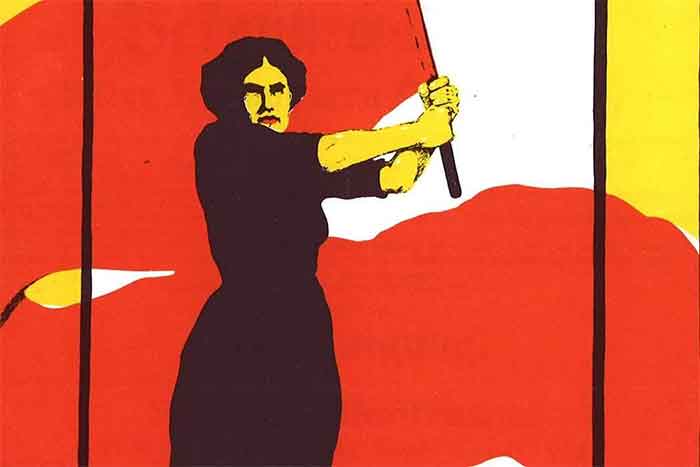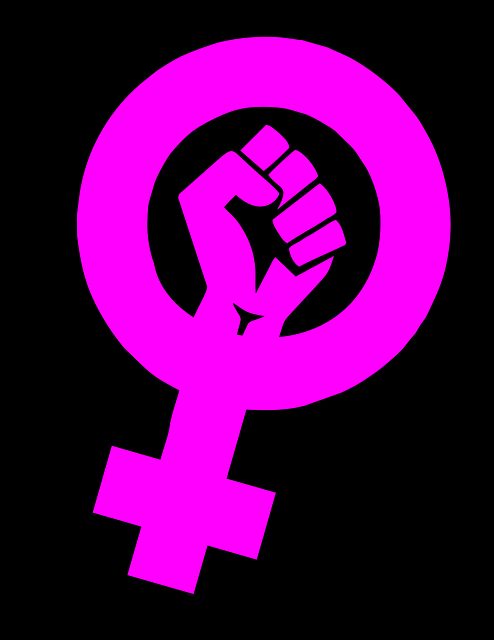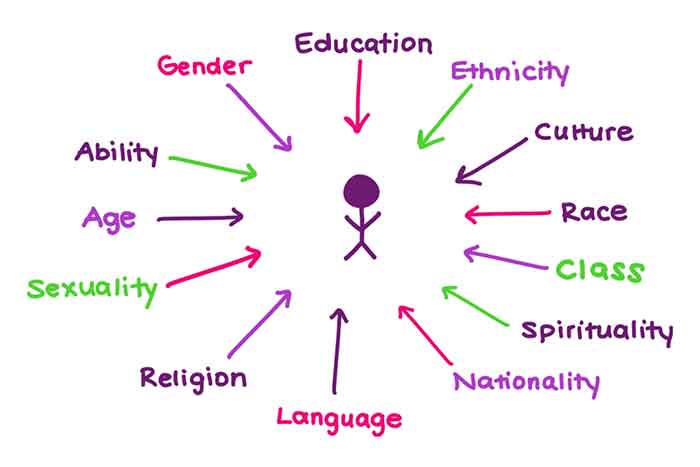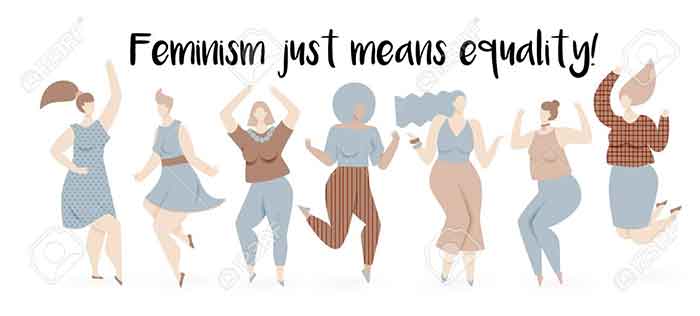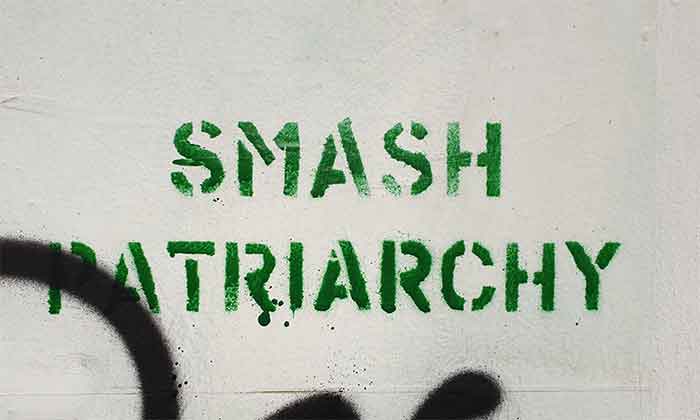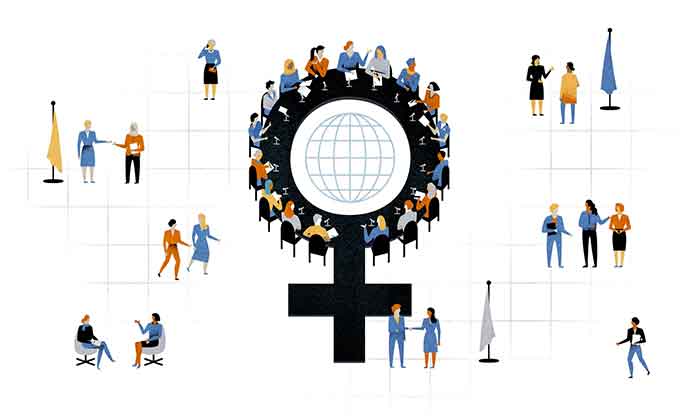
In the present world order, when the countries worldwide are facing climate crisis as well as other forms of vulnerabilities including rising misogyny, increased emphasis on nationalism, populism and hate, unique challenges are emerging that need to be addressed. Persistent social, economic and political inequalities have further sharpened during COVID-19 crisis while the countries have rolled back policies that could have helped the marginalized. Most affected of these crises are women and children. In such situations, the concept of feminism is being used by the states the global level to make several interventions. FPP is one of the concepts that is evolving worldwide. Based on the United Nations Council Resolution 1325 adopted in October 2000, it is proposed that in all aspects of conflict management, security mechanisms, post-conflict reconstruction and peacebuilding, gender will be prioritized. This paper suggests that FPP may be seen as a tool to examine and rethink the existing domestic as well as the global policies, the way these are implemented and their impact at the ground level. More specifically, keeping in mind the context of the third world countries and their specific situations pertaining to persisting patriarchy, class bias, casteism, and other forms of prejudices, this work recommends to evolve a framework where each policy, law of decision be put to a test of trifecta of hope, imagination and possibility to create a just world order.
Feminist Foreign Policy (FPP): What is it?
Feminist foreign policy is a concept evolved by Margot Wallstrom, former Swedish Foreign minister who believes that including women in peace negotiations makes them more likely to be successful and have positive effects. The policy calls for the state to promote good practices to achieve gender equality and to guarantee all women their human rights through diplomatic relationship. It is developed in response to the systemic and structural subordination and marginalization of women that characterize the lives of countless women world over.
The priority of FPP to strengthen women’s participation in establishing peace and preventing conflicts, emphasizes women’s economic rights and empowerment, developing trade policies and negotiations based on the concept of gender equality, promote women’s rights in and through the process of governance that also seeks to prevent gender-based violence in all forms. FPP assures role of women in global politics and promote feminist inspired dialogues.
In Sweden, this policy is promoted since 2014 that influence both foreign and domestic relations and is developed to achieve the goals of gender equality and aims to strengthen women’s rights, representation and resources of all women and girls[2]. The Canadian policy formulated in 2017 prioritized the gender equality primarily in the service of broader economic and security goals. France developed feminist diplomacy approach in 2019 and articulated gender-related priorities which the state addresses through its foreign assistance. Scholars suggested that the policy in Sweden is about strengthening its laws and institutions whereas in Canada it is about incorporating the private into the public interest[3].
Since then, in many countries, it is advocated that there is a need to develop the feminist foreign policy and some countries have taken concrete steps in this direction including Mexico (2020), Spain (2021), Luxemburg (2021), Germany (2021) and Chile (2022). FPP is rapidly getting traction in the national and international discourse. FPP is tailored as per the distinctive socio-political culture and circumstances, specific needs and background of each locality. Based on gender understanding, FPP brings in elements of gendered power structures, privileges and institutions and how these effect the goals of gender equality and gender justice.
Though the term `feminist’ is already being in use by the state and other actors such as non-profit and transnational organizations at the national and local level with the focus on gender mainstreaming and equality in governance while reconceptualizing the left, radical and progressive[4]. Yet, it is stated that using the language of feminism in an affirmative way through the political structures to gain ground in the international context may change the approach of the states in terms of international relations.
The UN Women is also advocating to focus on militarism-trade nexus, harmful economic or trade policies, including the role of extractive trade policies, besides migration and asylum policies[5]. FPP is based on conviction that gender equity and equality are preconditions for long-term peace and security. This is also affirmed by a study which shows that between 1992 and 2022, women constituted 13 percent negotiators 6 percent mediators and 6 percent signatories in the major peace processes around the world[6]. It is further noted that despite its success, in seven out of ten peace processes women are still not included[7]. FPP, therefore is rooted in the agenda for peace and justice.
The Centre for Feminist Foreign Policy[8] define FPP as “a political framework centred around the wellbeing of the marginalized people and invokes processes of self-reflection regarding foreign policy’s hierarchical global systems. FFP takes a step outside the black box approach of traditional foreign policy thinking and it focuses on military force, violence and domination by offering an alternate and intersectional rethinking of security from the viewpoint of most vulnerable. It is a multi-dimensional policy framework that aims to elevate women’s and other marginalized groups’ experiences and agency to scrutinize the destructive forces of patriarchy, colonisation, heteronormativity, capitalism, racism, imperialism and militarism”.
As per this definition, the FFP provides a feminist platform through which one may interrogate the violent global system or power that is pushing millions of live to precarity. It is a mechanism to challenge the dominant neoliberal regime to establish peace, justice, and equality through solidarity using a feminist approach. FPP aims to interrogate the domestic and foreign policy decisions to push for a global just order. Based on the concept of diversity in terms of representation, the purpose of FPP is to facilitate structural and hierarchical transformations to end oppression and discrimination with a view to elevate the voices of those who have suffered the most from militarised security.
The Critique of FPP
The critiques of FPP argue that first of all, the discourse around the term `feminism’ in itself is vast and include multiple ways it is practiced in multiple contexts while challenging the hostilities of various kinds[9], secondly, over the decades, the concept of feminism is deployed by the states and the private parties including corporate sector for their vested interest[10]. Rather feminism is co-opted by the neoliberal agenda and losing its original emancipatory and radical impulses[11]. The media, popular culture and the state deployed the vocabulary of `empowerment’ and `choice’ to push an individualistic discourse or `faux feminism’ to substitute the idea of revolutionary feminism or in a way they are `undoing feminism’[12].
It is also argued that the Sweden’s FPP considers gender equality as a goal whereas the Canada’s FPP is focused on economic argument while using the term feminism to propagate its liberalization agenda that integrate private sector into public development policies[13]. Moreover, the efforts made by both Canada and Sweden to formulate FPP are also accompanied by simultaneous arm trades with countries known for women’s rights abuse[14]. Further, most of the policies are written and implemented through male-dominated structures that reinforce patriarchy.
Some scholars argue that increasing institutionalization of feminist practices and gender mainstreaming within governmental and non-governmental institutions have positive effects where feminists have an opportunity to restructure the political institutions with a gendered understanding. While others are of view that the process of framing UN policies is not free from the social and historical factors[15]. Scholars have utilized the post-colonial feminist approach to describe that foreign policies marginalize and exclude the gendered, sexuality and race elements while ignoring the intersection oppressions[16]. What is suggested is to develop an ethical framework which embraces the lived experiences of women and the marginalized groups based on the care paradigm[17].
The Indian Experience
The experiences of development over decades in the independent India depict uneven results. There is some progress in the field of education and health of women, yet new and dynamic challenges are emerging that are reversing the gains and are rolling back the rights. The discriminatory implementation of laws and policies still continue despite the constitutional guarantees of equality, liberty and social justice. The social, economic and political inequalities are widening and hampering the inclusion of marginalized groups[18].
Pritchett[19] in his lecture while giving examples from India and Indonesia argued that many developing countries lack the capabilities to perform basic functions and therefore enhancing the state’s capability is essential in long run. Though, this is seemingly a top-down idea which does not take into account the feminist dimensions of development, yet the issue is that state in India has not been able to fulfill its constitutional promises it made to its people for over decades. Moreover, the free-market approach is being introduced since 90s that is pushing the concept of a consumer citizen while rolling back the social reforms and dismantling the concept of `welfare state’[20].
Consequently, the rankings of India as measured through the Global Hunger Index, Gender Index, Democracy index is going down, little progress is made on the SDGs and other such parameters. The data by the NCRB which shows that crime against women is increasing over decades, the sex ratio is skewed despite the tall promises being made to achieve the goal of gender balance. All this suggests that there is an urgent need that India takes step towards inclusion of women and other marginalized groups, advance women’s rights as human rights, promote diversity, eliminate discrimination and end all forms of violence. India needs to deconstruct the dominant power structures that are hampering the growth of the entire country.
Though India has ratified CEDAW in 1993 which indicates its commitment towards gender equality yet, it has to take actions to implement those promises in reality. In 2007, India contributed to the UN’s peacekeeping efforts by send an all-women peace keeping contingent to Liberia[21]. The country is also committed towards implementing the UN SDGs while in 2020, India also obtained the membership to United Nations Commission on the status of women[22]. However, these efforts are being critiqued as most of these efforts are being at the superficial level because of gaps that exist between those on papers and the reality[23]. India has not ratified the WPS agenda despite of armed conflicts, heavy militarization and heavy violence against women in some areas[24]. India has also not ratified the optional protocol of CEDAW. Keeping these issues in view, this work suggests for a comprehensive and a holistic approach which aims for an equitable, just, fairer and an inclusive world.
FFP: Towards Trifecta of hope, imagination and possibilities
This piece of work suggests for the trifecta approach while drawing on from experiences of FPP as adopted in other countries and examining the Indian situation rooted in the colonial experiences looks at the ideas from which one can draw an FFP, through the lens of feminism that underpins the policy and its linkages with the ground level realities. It suggests that FPP should seek to challenge the historical, patriarchal, casteist, class-based, neo-colonist imbalance of power that play locally, nationally as well as globally in a holistic manner. It recommends for a series of trifectas besides the trifecta of testing any policy, law or decision.
The Trifecta of testing a workable policy or a decision consists of
Test of rationality/ reasonability, Test of constitutionality (constitutional values of democracy, pluralism, justice), and Test of feminist principles (power to people)
Any policy or decision could be put to above trifecta of testing to ensure that the policy is rational and reasonable and is made within the limits of constitutionality while upholding the principles of democracy, pluralism, diversity and social, economic and political justice as enshrined in the constitution. The third test is of feminist principles which focuses on inclusiveness, welfare, equity and justice.
Trifecta of Situationality (Where it will apply)
The broader vision of FPP cannot remain limited to international relations but it should permeate within the national and local policy/law/decision making and implementation to address the issues relating marginalization and exclusion.
Trifecta of Goals (What to achieve)
Much focus needs to be laid to intersectionality in a hierarchical society where patriarchy, casteism, class bias, religion and similar factors operate to hinder the democratic pathway. The symbiotic relationship exists between the domestic and the foreign policy and both should be reworked to address the structural oppression. Emphasis is laid on the dimensions of inclusivity with the right-based perspective.
Trifecta of Actions (How)
By developing the mechanisms of transparency and accountability at every level reiterated by the mechanisms such as documentation of information, research and data collection as well as sharing of data and by building mechanisms of accountability at every level.
Trifecta or Talisman of Reaching out to Last person approach (Gandhian principles)
The talisman by MK Gandhi stressed on thinking about the last person, the trifecta of last person approach is inspired by this concept.
FFP: Towards Trifecta of hope, imagination and possibilities
| Trifectas | T 1 | T 2 | T 3 | |
| 1 | Trifecta of Situationality
(Where) |
Global | National | Local |
| 2 | Trifecta of Goals
(What to achieve) |
Inclusivity | Equitability/ intersectionality | Right-Based Perspective |
| 3 | Trifecta of Actions
(How to do it?) |
Transparency/ Accountability at every level
Need to develop a stringent mechanism for checks and balance |
Allocation
Of resources and responsibilities |
Timeliness and sharing of information |
| 4 | Trifecta or Talisman of Last person approach (Gandhian principle) | Empowerment of the last person | People-centered
Decentralization Or Bubble up approach |
Gender Just and Feminist Oriented |
| 5 | Trifecta of Capable Governance | Corruption Free
Non-bureaucratic approach |
Scientific Knowledge Based
With continuous training/ participation at all levels |
Innovation/Creativity/
Solidarity |
| 6 | Trifecta of Happiness | Ending Poverty, Malnutrition, Hunger with focus on health, education and employment | Ending power-based oppression and structural discrimination to achieve ultimate goal of democracy within families, societies and communities | Achieving goals of Happiness Index
|
Trifecta of Capable Governance
Eliminating corruption at all levels, non-bureaucratic approach based on scientific knowledge with continuous training at all levels is essential. Encouraging creativity and innovation with the scientific temper is also mentioned in the Article 51 of the constitution.
Trifecta of Happiness
This is the ultimate aim of any policy or law or decision making where the success is measured not in terms of economic parameters but more on the parameters of sustainability, happiness index that focuses on holistic development that prioritize wellbeing and not just economic prosperity[25]. (Finland, Denmark, Switzerland, New Zealand and other countries are on top of the list as prepared by the World Happiness Report 2022[26])
Marching Ahead
In short, FPP or any policy decision or law in order to achieve the vision of a gender just world cannot afford to work towards creating only a symbolic equality but should be based on meaningful political transformation. Keeping in mind the critiques of the policies being made and the situation that exist at the ground level, it is suggested that the FPP should be designed as a comprehensive horizontal approach that goes beyond the trade, security, defense or diplomacy issues to imagine an equitable world. The trifecta approach points out to a potential area for analysis of constitutive links between domestic ethical setting in which FPP is contextualized from the point of view of people and is based on bubble up approach. More specifically, it requires to create a strong accountability system based on the profound commitment to the norms of gender justice and constitutional values of equality, liberty and justice while reflecting on the voices of women and while capturing the localized lived realities and experiences while recognizing the intersectionality framework and the way the structure of oppression work. The trifecta approach is a vision for an inclusive and a just world based on the pillars of hope, imagination and possibilities.
About the Author
Currently, the author is working as an advocate, researcher, and activist at the intersection of gender, law, governance, and human rights issues in India. She has done her Ph.D. in Social Work and has obtained a law degree. She has published several books, articles and research papers. Her recently published books include `The Founding Mothers: 15 Women Architect of the Indian Constitution’ (2016) (co-author) `Women and Domestic Violence Law in India: A Quest for Justice’ (2019) and `Domestic Violence Law in India: Myths and Misogyny (2021).
[1] I am grateful to IMPRI and FES to invite me to a consultative workshop on FPP organized in October 2022 as a participant. This invitation inspired my journey to understand the issue and to put my initial thoughts together.
[2] Government of Sweden (2014) Feminist Foreign Policy https://www.government.se/government-policy/feminist-foreign-policy/
[3] Thomson Jennifer (2020) The Growth of Feminist (?) Foreign Policy, E international Relations, February 10, https://www.e-ir.info/2020/02/10/the-growth-of-feminist-foreign-policy/
[4] Eschle, C. and B Maiguashca (2014), Reclaiming Feminist Futures: Co-opted and Progressive Politics in a Neo-liberal Age. Political Studies, 62: 634–651.
[5] UN Women (2022) Feminist Foreign Policy: An Introduction https://www.unwomen.org/sites/default/files/2022-09/Brief-Feminist-foreign-policies-en.pdf
[6] Council on Foreign Relations (undated) Women’s participation in peace processes, https://www.cfr.org/womens-participation-in-peace-processes/explore-the-data?_gl=1*1cokbr1*_ga*MTA4MDYyODk4My4xNjY1ODA3Nzk2*_ga_24W5E70YKH*MTY2NTgwNzc5Ni4xLjEuMTY2NTgwNzkwMi4wLjAuMA..
[7] Council on Foreign Relations https://www.cfr.org/womens-participation-in-peace-processes/
[8] Centre for Foreign Feminist Policy What is Feminist Foreign Policy? https://centreforfeministforeignpolicy.org/feminist-foreign-policy consulted on 15.10.2022
[9] Watkins Sylvia (2018) “Which Feminisms?” New Left Review, Jan–Feb, 5–76
[10] Thomson Jennifer (2020) The Growth of Feminist (?) Foreign Policy, E international Relations, February 10, https://www.e-ir.info/2020/02/10/the-growth-of-feminist-foreign-policy/
[11] Fraser Nancy (2013) Fortunes of Feminism: From State managed capitalism to neo-liberal crisis, Verso, London
[12] McRobbie Angela (2009) The aftermath of feminism: Gender, Culture and Social change, Sage, London
[13] Thomson Jennifer (2020) What’s feminist about feminist foreign policy? Sweden’s and Canada’s Foreign Policy Agendas, International Studies Perspectives, 21 (4) 424–437
[14] Thompson Lyric and Rachel Clement (2019) Defining Feminist Foreign Policy, ICRW, https://www.icrw.org/wp-content/uploads/2019/03/Defining-Feminist-Foreign-Policy-Brief-revised.pdf
[15] Gibbings Sheri Lynn (2011) No angry women at the United Nations: Political dreams and cultural politics of United Nations Security Council Resolution 1325, International Feminist Journal of Politics, 13:4, 522-538
[16] Achilleos-Sarll Columba (2018). Reconceptualising Foreign Policy as Gendered, Sexualised and Racialised: Towards a Postcolonial Feminist Foreign Policy (Analysis). Journal of International Women’s Studies, 19(1), 34-49.
[17] Aggestam Karin, AB Rosamond, and A Krosnell (2019) Theorizing feminist foreign policy, International Relations, 33(1) 23-39
[18] Nigam Shalu (2014) From the Margins: Revisiting the concept of `marginalized’ women, countercurrents.org September 3, https://www.countercurrents.org/nigam030914.htm
[19] Pritchett Lant (2013) Folk and the formula: Fact and fiction in development, UNU WIDER Annual Lecture, https://www.wider.unu.edu/sites/default/files/News/Documents/Folk-and-formula-fact-and-fiction-Lant-Pritchett-5766.pdf
[20] Raja D (2021) Dismantling public sector and subverting welfare state, Mainstream weekly, LIX(9) Feb 13, http://mainstreamweekly.net/article10476.html
[21] DW.com (2022) India: Female troops take on UN peacekeeping missions, March 8 https://www.dw.com/en/india-female-troops-take-on-un-peacekeeping-missions/a-61042763
[22] Scroll.in (2020) India elected member of UN Commission on Status of Women, pip China to the post, September 15, https://scroll.in/latest/973128/india-elected-member-of-un-commission-on-status-of-women-pips-china-to-the-post
[23] Magan Tapakshi (2022) A closer look into the Feminist Foreign Policy in India, January 16 https://www.orfonline.org/expert-speak/a-closer-look-into-feminist-foreign-policy-in-india/
[24] Global Network of Women peace Builders (undated) India: A Case study on the complementary use of GR 30 and UNSCR 1325 https://gnwp.org/wp-content/uploads/India-Case-Study-.pdf
[25] Oishi Shigehiro and Ed Deiner (2014) Can and should happiness be a policy goal? Policy insight from behavioral and brain science, 1(1) 195-203
[26] World Happiness Report 2022, https://worldhappiness.report/ed/2022/

